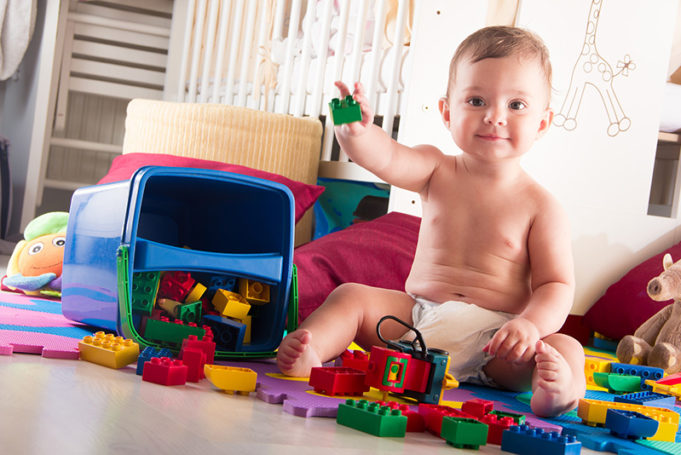18 Dec Why is Infant Stimulation so Important?

Did you know that 90% of the brain connections develop during the first five years of the life of a human being?
According to the Center for Neuroscience and Society of the University of Pennsylvania, children’s experiences influence the development of their brains. Until the age of four, the cognitive stimulation provided by their parents is a critical factor for the development of several parts of the cerebral cortex.
Researches have shown that the support, care, and stimulation that children receive at that age can have repercussions on the way they perceive and understand reality, and therefore, in their academic performance during their teenage years. Stimulating your baby from day one is very important, as you can see.
Early stimulation includes all types of activities that promote children’s development through physical contact and games created to strengthen and develop, in a suitable and timely manner, their potential as human beings.

Its main benefits include:
Brain development: Improves the intellectual, physical, and emotional functions of the brain.
Autonomy generation: They are independent of early childhood and have the confidence to interact with other people.
Communication improvement: Children easily integrate into the environment.
Strengthening motricity: Exercises improve children’s motor coordination —walking, crawling, jumping, and running.
Creativity promotion: Children are more open when solving problems, and they usually search for answers “outside the box.”
Early stimulation is based on activities such as games, songs, and stories. According to the Center on the Developing Child of Harvard University, our motivation to identify elements of the world that surround us starts from infancy, and it has repercussions in adulthood. They recommend:
Arousing children’s curiosity: children explore objects and enjoy how they surprise them.
Looking for elements that your child can interact with: toys and blocks can support your child’s development and encourage their creativity.
Challenging your child: use each toy to pose a different challenge; children can lose their interests in games that are too easy.
Encouraging your child to solve problems: there are games —even in electronic devices— that help to increase the children’s knowledge about their environment and push them to solve problems since early childhood.
Search for the best games and tools for your children’s development. As the years go by, you will notice the advantages of early stimulation
#BOXIESTIP
Coordination and visual memory are fundamental in early childhood. Playing with Bingo Box helps you to boost those skills and the linguistic development of your children.
SOURCES: Center on the Developing Child – Harvard University; National Health Service (UK); Unicef; American Academy of Pediatrics; and Developing Brains, John Oates, Annette Karmiloff-Smith, and Mark H. Johnson, Bernard van Leer Foundation, Milton Keynes (UK).



Sorry, the comment form is closed at this time.